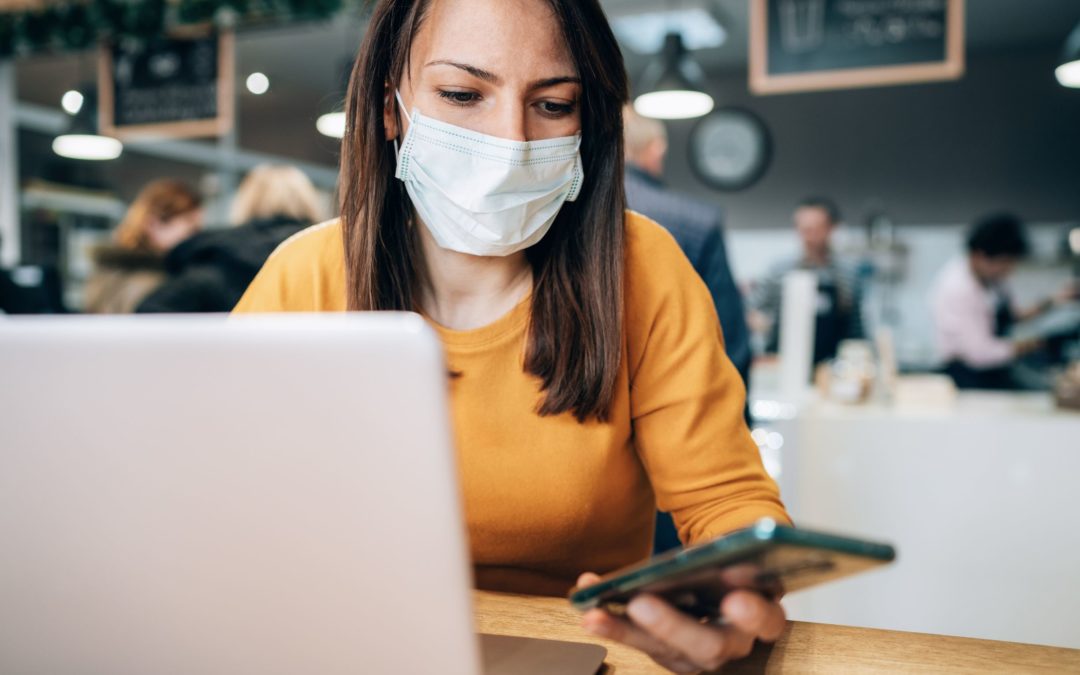Workplace legal issues and federal, state, and local policies related to the coronavirus are changing by the day. The entire pandemic has left many stammering in order to find resolutions for what has become an economic crisis.
Due to the COVID-19 pandemic, non-essential Michigan businesses have been forced to close, and as a result many employees have been temporarily laid-off or have lost their jobs entirely.
All of this leads to an endless number of questions for employers and business owners alike, as well as for lawmakers and other government leaders. Answers to many of these questions remain convoluted and probably will for quite some time. Decisions and policies related to this crisis are certainly open to interpretation, and they are likely to change amidst this uncharted territory.
However, following is a general overview to help answer questions that employees may have in regard to the coronavirus outbreak and the damaging results it has left along the way.
Families First Coronavirus Response Act: Child Care and Paid Leave Addressed
The fact that schools are closed and children are home while a stay-at-home order is in place may make going to work nearly impossible. Even working from home may have its challenges.
To address these concerns, Family Medical Leave Act protections have been expanded to guarantee paid sick leave for certain employees.
Employers with fewer than 500 employees are required to provide up to two weeks of paid leave and 10 weeks at two-thirds of pay for workers, effective until the end of this year. Employees in quarantine, caring for sick family members, or with children whose schools or day-care programs have closed are eligible for the initial two weeks of paid leave.
As noted on the U.S. Department of Labor website, the Families First Coronavirus Response Act provisions take effect at the start of April and will apply through the end of this year.

Provisions have been made to ensure parents can take care of a sick child or care for a child if daycare is not available.
Breaking It Down
Specifically, the act says employers must provide to all employees:
- “Two weeks (up to 80 hours) of paid sick leave at the employee’s regular rate of pay where the employee is unable to work because the employee is quarantined (pursuant to Federal, State, or local government order or advice of a health care provider), and/or experiencing COVID-19 symptoms and seeking a medical diagnosis, or
- “Two weeks (up to 80 hours) of paid sick leave at two-thirds the employee’s regular rate of pay because the employee is unable to work because of a bona fide need to care for an individual subject to quarantine (pursuant to Federal, State, or local government order or advice of a health care provider), or care for a child (under 18 years of age) whose school or child care provider is closed or unavailable for reasons related to COVID-19, and/or the employee is experiencing a substantially similar condition as specified by the Secretary of Health and Human Services, in consultation with the Secretaries of the Treasury and Labor.”
Employees who have been employed for at least 30 days also are entitled to an additional 10 weeks of paid expanded family and medical leave at two-thirds of the employee’s regular rate of pay where an employee is unable to work due to a need to care for a child whose school is closed.
The paid sick leave and expanded family and medical leave provisions of the FFCRA apply to certain public employers, and private employers with fewer than 500 employees. Federal employees are covered by Title II of the Family and Medical Leave Act, which has its own sick leave provisions.
Small businesses with fewer than 50 employees may qualify for exemption from the requirement to provide leave due to school closings or childcare unavailability if the leave requirements would jeopardize the viability of the business.
Qualifying reasons for leave under the FFCRA include:
- Being subject to a quarantine or isolation order related to COVID-19
- Being advised to self-quarantine related to COVID-19
- Experiencing COVID-19 symptoms and seeking a medical diagnosis
- Caring for another individual experiencing COVID symptoms or in quarantine
- Caring for a child whose school or place of care is closed (or child care provider is unavailable) for reasons related to COVID-19
- Experiencing any other substantially similar condition specified by the Secretary of Health and Human Services, in consultation with the Secretaries of Labor and Treasury
In most of these cases, a full-time employee is eligible for up to 80 hours of leave, and a part-time employee is eligible for the number of hours of leave that the employee works on average over a two-week period.
For issues regarding childcare as noted above, a full-time employee is eligible for up to 12 weeks of leave at 40 hours a week, and a part-time employee is eligible for leave for the number of hours that the employee is normally scheduled to work over that period.
Employers who violate the act may be subject to penalty and/or enforcement.
Work Prohibitions & Stay-at-Home Order
In the State of Michigan, unless you are a critical infrastructure worker, you are prohibited from in-person work from now through April 13, 2020 per Michigan Executive Order 2020-21.
Businesses that employ critical infrastructure workers and maintain in-person operations MUST adhere to social distancing and other safety measures as indicated by the order.
The order prohibits all in-person work that is not necessary to sustain or protect life during this period of time. No person or entity can operate a business or conduct operations which require employees to leave their homes or places of residences unless those workers are considered critical infrastructure workers.
The definition of “critical infrastructure workers” is detailed by the Director of U.S. Cybersecurity and Infrastructure Security Agency and has been adopted by Michigan Executive Order 2020-21.
If the business employs critical infrastructure workers and is unable to transition them to remote work, they MUST enforce specified safety standards.
A willful violation of the order will be treated as a misdemeanor.

First responders are among those who are considered essential critical infrastructure workers.
Definition of Critical Infrastructure Worker
Pursuant to the Director of U.S. Cybersecurity and Infrastructure Security Agency, Critical Infrastructure Workers may include employees in the following sectors:
- Health care and public health
- Law enforcement, public safety, and first responders
- Food and agriculture
- Energy
- Water and wastewater
- Transportation and logistics
- Public works
- Communications and information technology, including news media
- Other community-based government operations and essential functions
- Critical manufacturing
- Hazardous materials
- Financial services
- Chemical supply chains and safety
- Defense industrial base
Under the Michigan Executive Order, critical infrastructure workers also include:
- Child care workers but only to the extent necessary to serve the children or dependents of critical infrastructure workers as defined in this order
- Workers at designated suppliers and distribution centers
- Workers in the insurance industry, but only to the extent that their work cannot be done by telephone or remotely
- Workers who perform critical labor union functions … provided that any administration or monitoring should be done by telephone or remotely where possible
Unemployment Benefits
Unemployment benefits have been expanded temporarily to cover workers who have family care responsibilities related to COVID-19, including those who must take care of someone who is sick or take care of their children due to school closures.
Individuals who are sick, quarantined, or immunocompromised and who don’t have access to paid leave or are laid off, as well as first responders who become ill, also gain some benefits.
Gov. Whitmer announced on March 30 that workers who did not previously qualify for state unemployment benefits would be covered as well. They include those who are self-employed, 1099 contractors, gig, and low-wage workers who can no longer work because of the pandemic.
Following are three provisions of unemployment benefits that have been changed temporarily:
- Benefits were first increased from 20 weeks to 26 weeks, but on March 30, Gov. Whitmer announced that unemployment benefits could be obtained for 39 weeks.
- The application eligibility period will increase from 14 to 28 days.
- In-person registration and work search requirements have been suspended.
Eligible employees should apply for unemployment benefits online at Michigan.gov/UIA or 1-866-500-0017.

Michigan residents who are seeking unemployment benefits may do so online, as in-person registration will not be an option during the stay-at-home order.
Workplace Safety in Relation to COVID-19
On any given day, your employer must provide you with a safe workplace environment. In the case of the coronavirus pandemic, this may include providing you with gloves and face masks if possible and necessary for you to do your job, as well as taking other precautionary measures as needed.
If you are considered a critical infrastructure employee and your employer maintains in-person activities, the employer MUST adopt social distancing practices and other mitigating measures to protect workers and patrons.
Those practices and measures include, but are not limited to:
- Promoting remote work to the fullest extent possible.
- Keeping workers and patrons who are on the premises at least SIX FEET from one another to the maximum extent possible, including for customers who are standing in line.
- Increasing standards of facility cleaning and disinfection to limit worker and patron exposure to COVID-19, as well as adopting protocols to clean and disinfect in the event of a positive COVID-19 case in the workplace.
For businesses that employ critical infrastructure workers, they may continue in-person operations subject to the following conditions:
- Businesses must determine which of their workers are critical infrastructure workers and inform such workers of that designation.
- Businesses and operations must make such designations in writing, whether by electronic message, public website, or other appropriate means.
- Business operations need not designate:
- Workers in health care and public health
- Workers who perform necessary government activities, such as:
- Activities performed by critical infrastructure workers, including workers in law enforcement, public safety, and first responders
- Activities performed by workers in public transit, trash pick-up and disposal
- Activities necessary to manage and oversee elections
- Operations necessary to enable transactions that support the work of a business’s or operation’s critical infrastructure workers
- Maintenance of safe and sanitary public parks so as to allow for outdoor recreation
Additional Factors
• Refusing Tasks
If you fear that you may become ill due to a job-related task, that task is unreasonable, and the employer requires you to do it anyway, your employer’s actions may possibly be illegal. However, if employers make provisions to minimize risks, it may be within the employer’s rights to ask you to do the work.
• What Happens if Someone is Sick
If you are or one of your coworkers is showing symptoms of the coronavirus, the employer may be allowed to ask you to go home. However, the employer cannot reveal personal medical information about you or your coworker to others.
• Retaliation
Employers may not discharge, discipline, or otherwise discriminate against any employee who takes paid sick leave under the Families First Coronavirus Response Act and files a complaint or institutes a proceeding under or related to the act.


Brownstown, MI 48134
- Follow
- Follow
- Follow
- Follow
Counselor Journal